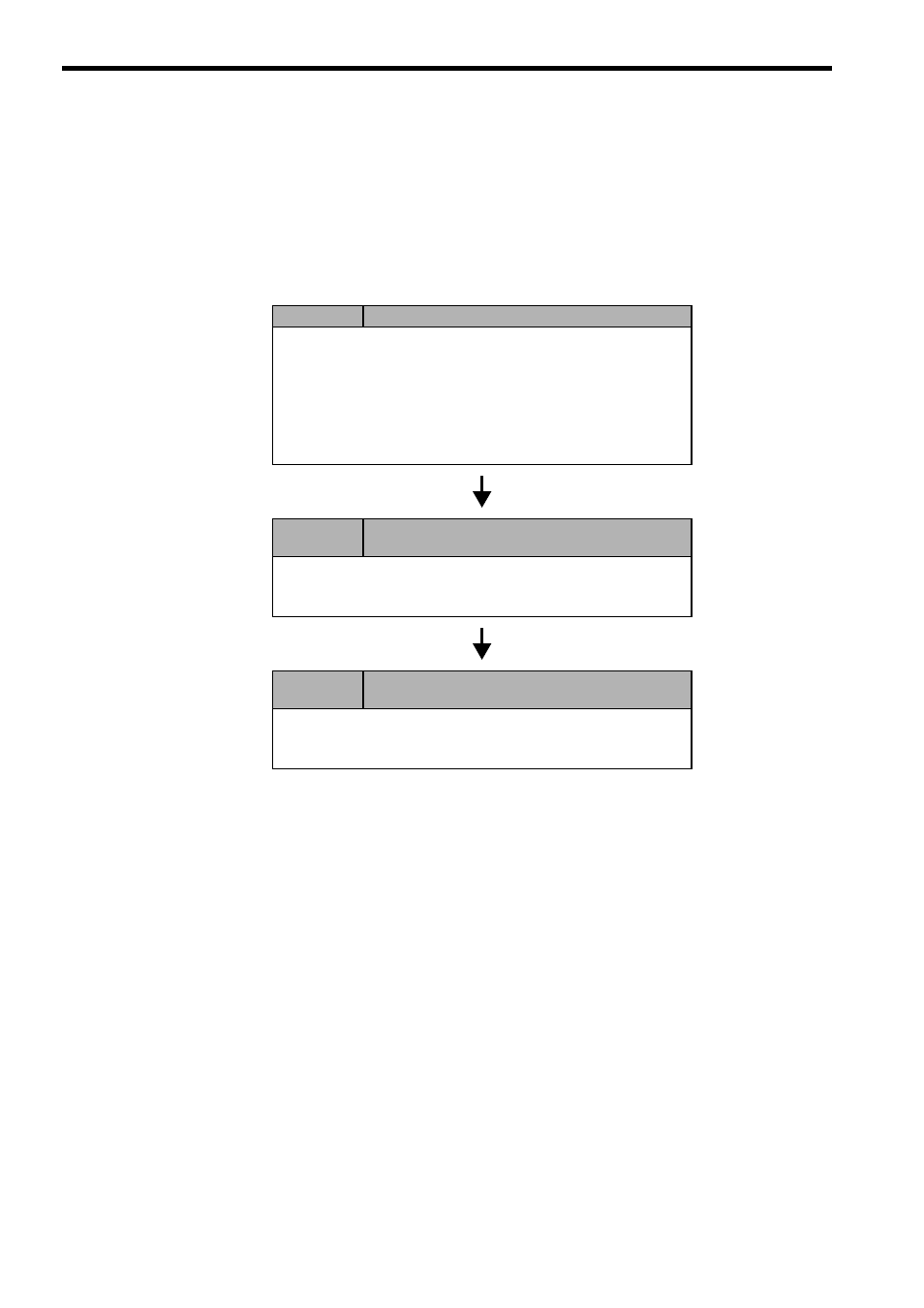1 troubleshooting, 1 basic flow of troubleshooting – Yaskawa MP2000 Series: User's Manual for Motion Programming User Manual
Page 305

10 Troubleshooting
10.1.1 Basic Flow of Troubleshooting
10-2
10.1 Troubleshooting
This section describes troubleshooting methods, and provides a list of motion program and sequence program
errors.
10.1.1 Basic Flow of Troubleshooting
When a problem occurs, it is important to quickly find the cause of the problem and get the system running again
as soon as possible. The basic troubleshooting flow is illustrated below.
Step 1
Visually confirm the following items.
• Machine movement (or status if stopped)
• Power supply
• I/O device status
• Wiring status
• Indicator status (LED indicators on each Module)
• Switch settings (e.g., DIP switches)
• Parameter settings and program contents
Step 2
Monitor the system to see if the problem changes in
response to the following operations.
• Switching the Controller to STOP status
• Resetting alarms
• Turning the power supply OFF and ON again.
Step 3
Determine the location of the cause from the results
of steps 1 and 2.
• Controller or external?
• Sequence control or motion control?
• Software or hardware?